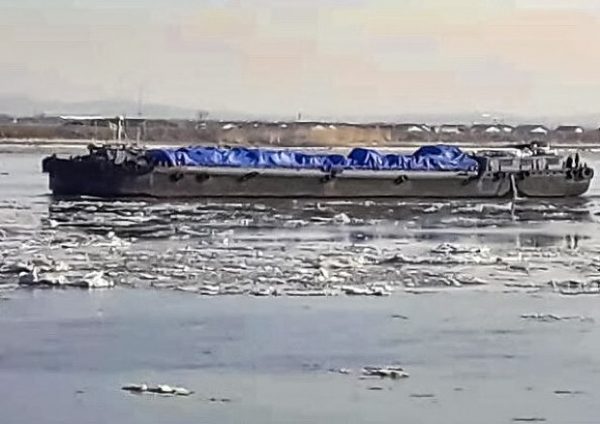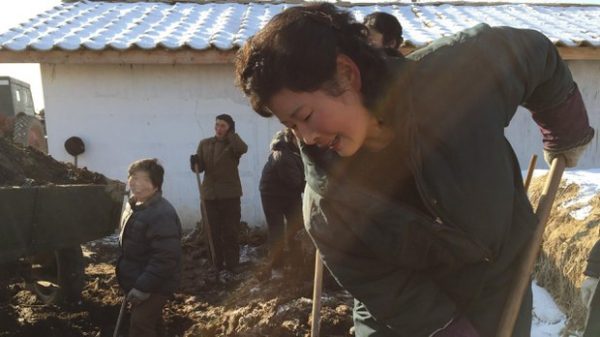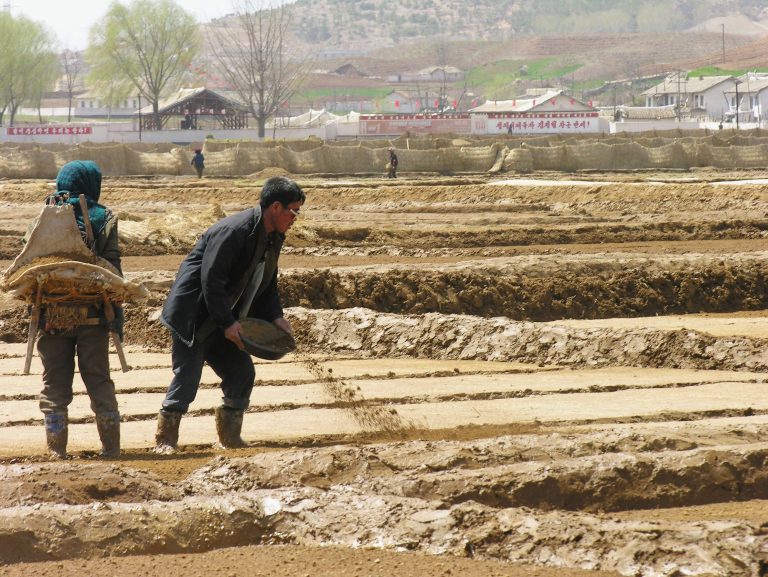In both North and South Korea, the lunar new year, known as Seollal, is supposed to be a time of celebration and feasting. As with their Chinese neighbors, Koreans welcomed the Year of the Tiger on Feb. 1 with family gatherings and community festivities.
But in totalitarian North Korea, the holiday spirit is offset by the bleak reality of constant shortages and crushing inequality. For the vast majority of the population, food, goods, and even human feces are things to be fought over, while well-to-do officials in the Stalinist regime use what few links the country has to the outside world — mostly China — to make sure they can feast properly.
As reported by Radio Free Asia on Jan. 28, “North Korea is suffering from severe food shortages, mostly due to the closure of the border with China since the beginning of the coronavirus pandemic in Jan. 2020. Though rail freight between the two countries resumed last week, many of the key ingredients are still in short supply.”
In the days leading up to Seollal, “small and medium-sized vessels have been frequently going to and from both ports across the Yalu River” in China and North Korea, RFA reported. The ships are laden with “fruits, cooking oil and sugar,” the U.S. state-sponsored outlet cited a North Korean source as saying.
READ MORE:
Success
You are now signed up for our newsletter
Success
Check your email to complete sign up
North Korea Is Trying to Build a Border Wall With China, But Can’t Get It Finished
North Korea Tests Hwasong-12 IRBM, Its Most Powerful Missile Since 2017

The ships belong to the General Bureau of Border Security, which is run by the Ministry of State Security (MSS) — North Korea’s secret police and spy agency.
According to the source, the border security bureau’s trading firms were allowed special permission to import Chinese goods in spite of Pyongyang’s pandemic restrictions. The allowance was made so that MSS officials can celebrate the lunar new year properly.
‘Battle for Manure Production’
Meanwhile, the authorities require ordinary citizens to reach a large quota of human manure, which is usually due around the lunar new year. The campaign, like many other mass actions, is described in propaganda as a “battle” for production.
According to RFA, North Korean officials purposely set the quotas impossibly high, so as to extract fines, bribes, and other favors from citizens looking to avoid punishment when they inevitably cannot meet the requirements.
This year, each able-bodied North Korean is supposed to produce 300 kilograms of manure (feces mixed with soil) by March and deliver it to a state-owned collective farm, locals told RFA.

To avoid fines and bribes, people often resort to stealing feces from neighbors’ toilets and outhouses, but sometimes the struggle escalates.
In the city of Chongjin, an industrial center near Russia, the race to find manure has resulted in gangs of residents engaging in fistfights over access to the communal toilets, a source whose identity is withheld told RFA’s Korean service. One such fistfight took place on Jan. 25.
“After the authorities imposed their orders for every citizen to produce manure, conflicts are erupting… as the people venture into other districts,” the North Korean source said. “Both adults and children are participating in the ‘Battle for Manure Production.’”
‘It’s so pathetic’
“It’s so pathetic that disputes break out over this, but they do this every year at about this time of year. Each family in the neighborhood has been organized into shifts to guard the communal toilet to keep the supply of human waste secure. Residents lament that they have to stand guard at a public toilet at night, then go to work the next day,” he said.
North Korea has a population of about 25 million on a territory the size of Mississpi state (population 2.9 million). The country is heavily mountainous, which, combined with North Korea’s isolation from the international community and centrally planned economy, contribute significantly to crushing hunger.
In the 1990s, energy shortages following the collapse of the Soviet Union — which supplied much-needed goods to North Korea — and bad weather cut harvests, killing perhaps more than 1 million people.
READ MORE:
Blaming ‘Hostile Forces’, North Korea Says It Won’t Send an Olympic Team to Beijing
















